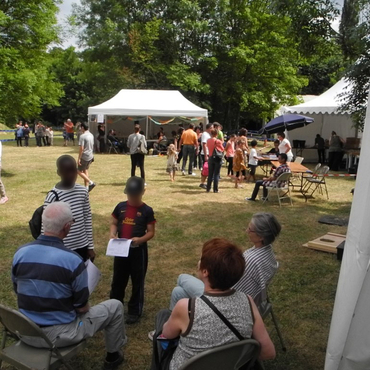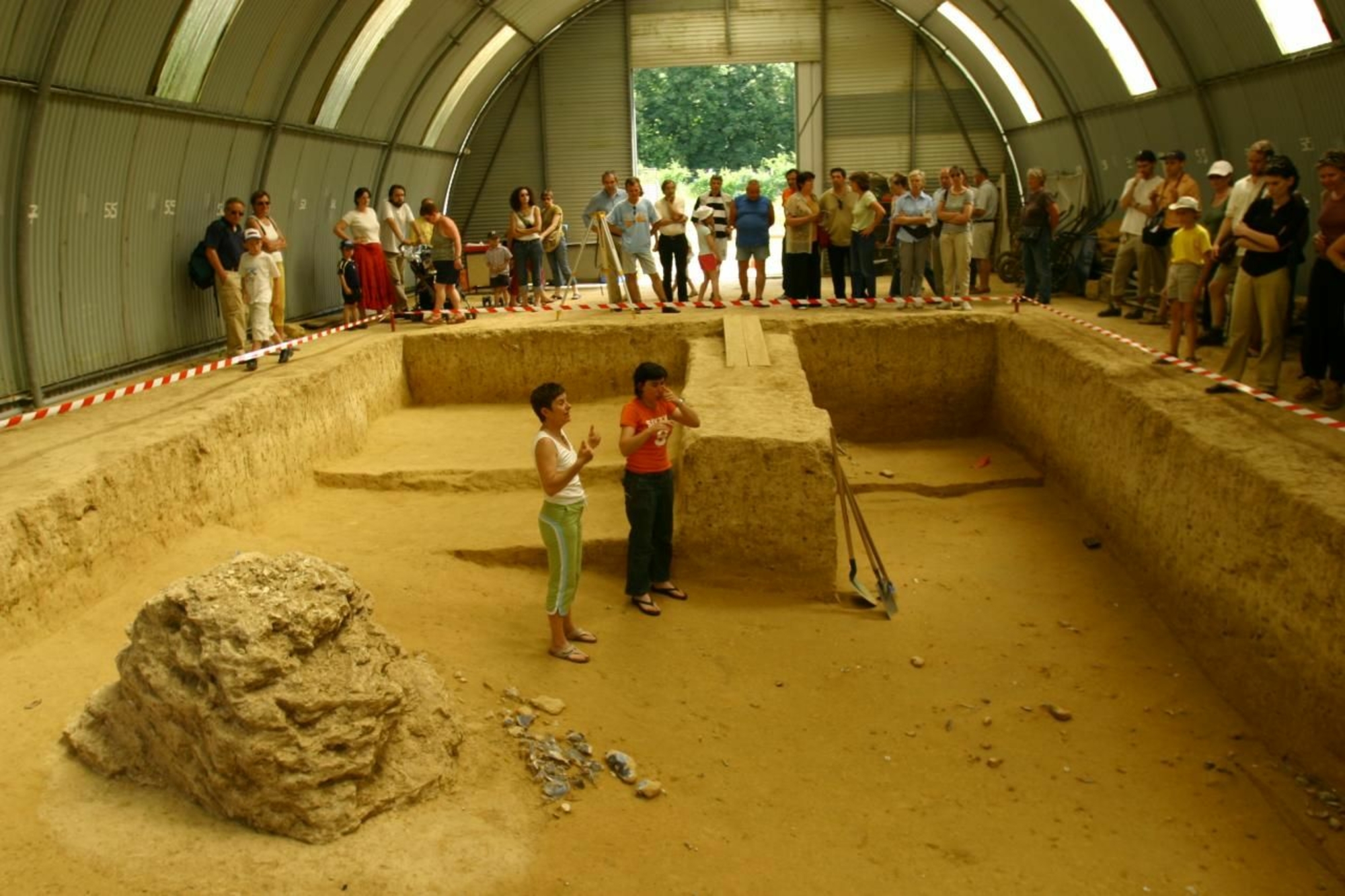
- Home
- Explore the site
- Étiolles, a centre for scientific innovation
- A training and outreach centre
Given the ambitious nature of the research that takes place there, as well as the level of the site’s preservation, many archaeology students are attracted to Étiolles and come to train at its school. The school has also become a place for reflection on outreach and the promotion of the site to a broader public.
A French-German team of scientists and a cosmopolitan research school
Approximately 20 researchers from the following diverse institutions work at the Étiolles research centre: the CNRS, the Ministry of Culture, the INRAP, the local authority, and two universities, the Paris 1-Panthéon-Sorbonne, from the centre’s beginnings, and now Kiel University (Germany). The remains that are excavated become materials studied by Master’s and Doctoral students exploring subjects as varied as malacology, zooarchaeology and technology. In addition, for one month each summer, students come to Étiolles to carry out the obligatory fieldwork training required for their archaeology courses. Twenty attend each year, which means that nearly 1,000 students from around the world have received training in excavating and surveying at this deposit. At other times of year, Étiolles welcomes university students for internships to develop their skills in prehistoric technology or archaeological mediation.
Promoting prehistory
The training course covering mediation and its ethics is one of the activities led by the organisation Arkéomédia. Arkéomédia is also responsible for raising public awareness of the site, which it does on behalf of the departmental authorities in Essonne, the site’s owners. It organises visits and workshops for children and events in schools, and organises the site’s annual opening to visitors on France’s National Archaeology Days. These events are all an opportunity for young people to get a glimpse of prehistoric life, but above all, for them to understand the careful and meticulous work which allows archaeologists to make discoveries about this long-ago period.
Partners and authors
Associated media
Open Media Library

An international school for excavation

A lesson in excavation

Study of fossil snails

Zooarchaeology

Bone technology

Visitors see an excavation under way at Étiolles

Open house at Étiolles

Activities during open days at Étiolles

